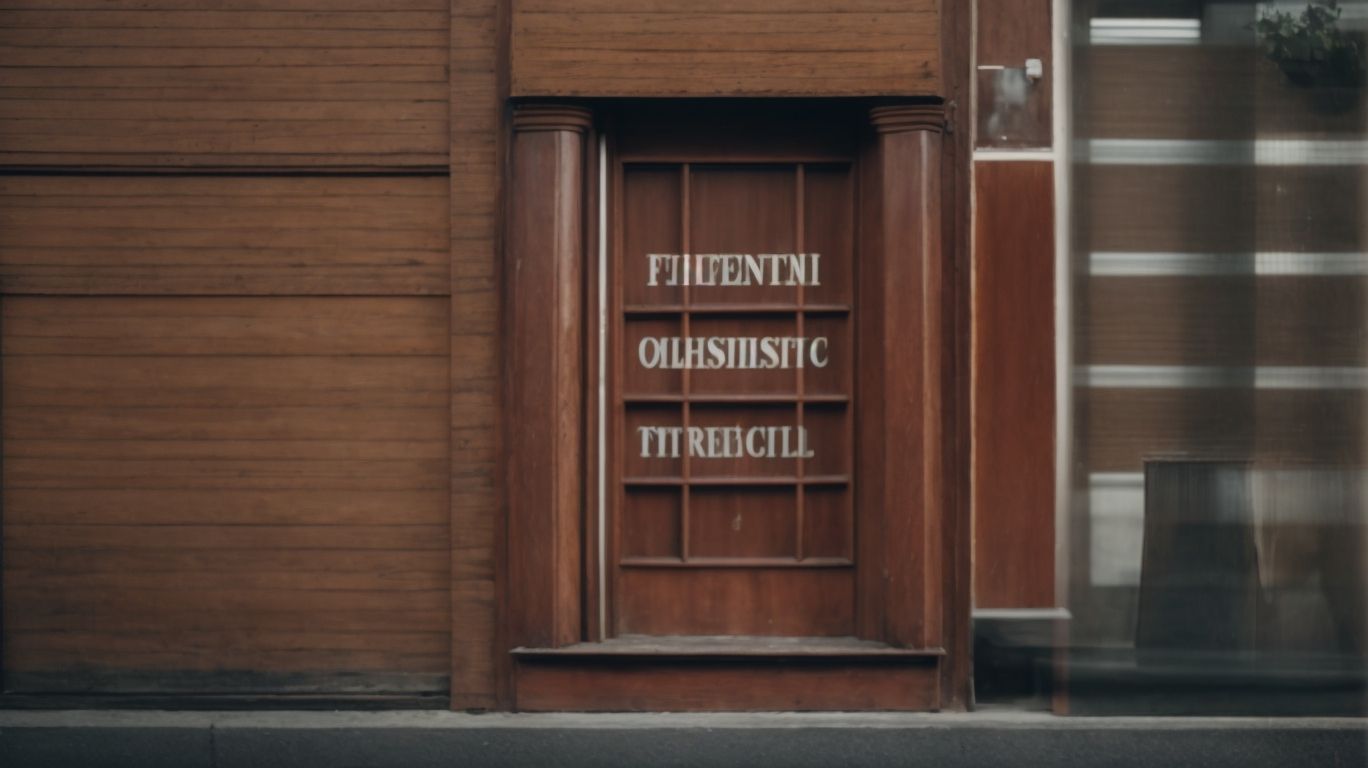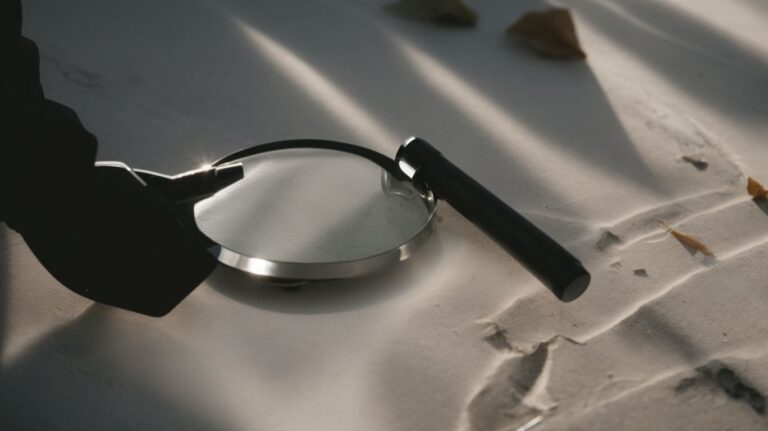Forensic psychology plays a crucial role in the legal system, particularly in understanding the impact of pre-trial publicity on juror decision making. This article will delve into the concept of pre-trial publicity and its effects on the fairness of trials.
We will explore the ethical considerations for forensic psychologists in relation to pre-trial publicity and discuss potential solutions to mitigate its effects. We will examine the challenges of addressing pre-trial publicity in the legal system and the role of forensic psychologists in addressing these challenges.
Contents
- 1 Key Takeaways:
- 2 What is Forensic Psychology?
- 3 What is Pre-trial Publicity?
- 4 Why is it Important for Forensic Psychology to be Aware of Pre-trial Publicity?
- 5 What Can Forensic Psychologists Do to Address the Effects of Pre-trial Publicity?
- 6 What Are the Challenges of Addressing Pre-trial Publicity in the Legal System?
- 7 What Are the Possible Solutions to Mitigate the Effects of Pre-trial Publicity?
- 8 Frequently Asked Questions
- 8.1 What is the importance of forensic psychology’s awareness of pre-trial publicity?
- 8.2 How does pre-trial publicity affect the fairness of a criminal trial?
- 8.3 What are some negative consequences of pre-trial publicity on the criminal justice system?
- 8.4 How can forensic psychology help address the issue of pre-trial publicity?
- 8.5 What factors can contribute to the impact of pre-trial publicity?
- 8.6 Is it possible to eliminate the effects of pre-trial publicity?
Key Takeaways:
What is Forensic Psychology?
Forensic psychology is a specialized field that merges the study of psychology and the legal system, recognized and defined by the American Bar Association.
Forensic psychology involves applying psychological principles to understand and analyze various aspects of the legal system. This includes criminal behavior, law enforcement procedures, and the assessment and treatment of individuals involved in legal cases. Forensic psychologists may work in diverse environments, such as law firms, correctional facilities, or governmental agencies. They may provide expert testimony, conduct evaluations, and aid in jury selection.
Furthermore, forensic psychology is gaining recognition in the courts. Forensic psychologists are often appointed as expert witnesses to help the legal system understand complex psychological concepts and evidence.
What is Pre-trial Publicity?
Pre-trial publicity refers to the media coverage and public discussions surrounding a legal case before the trial proceedings, intersecting with the principles of the First Amendment and public policy law.
Understanding pre-trial publicity entails analyzing its impact on the freedom of speech and the right to a fair trial. The tension between the individual’s right to free expression and the accused’s right to an impartial jury underscores the complex legal terrain.
Legal frameworks such as gag orders and change of venue seek to mitigate the potentially prejudicial effects of intense media scrutiny. Public perception, influenced by media portrayal, can significantly shape the outcomes of legal proceedings, prompting scrutiny of existing regulations and ethical considerations.
How Does Pre-trial Publicity Affect Juror Decision Making?
Pre-trial publicity exposure can significantly influence juror decision making, prompting the need for judicial instruction and empirical research to mitigate its effects on trial outcomes.
Studies have shown that exposure to pre-trial publicity can shape jurors’ perceptions and attitudes towards a case, potentially leading to biases and preconceived notions that influence their decision-making process. This underscores the importance of understanding the impact of media coverage and the dissemination of information on the fairness and impartiality of a jury.
Empirical research plays a crucial role in identifying the mechanisms through which pre-trial publicity affects jurors, allowing for the development of strategies and judicial instructions to address these influences effectively.
Why is it Important for Forensic Psychology to be Aware of Pre-trial Publicity?
It is crucial for forensic psychology to be cognizant of pre-trial publicity due to its potential impact on defendant assessments and trial proceedings.
Pre-trial publicity can significantly influence public opinion and attitudes towards the accused individual, potentially leading to biased juror perspectives and unfair trial dynamics. This can pose challenges for forensic psychologists when conducting assessments and evaluations of defendants.
They must consider the impact that media exposure may have had on the individual’s mental state, behavior, and decision-making processes. In such cases, legal professionals may seek the expertise of forensic psychologists to provide insights on the impact of pre-trial publicity on the defendant’s psychological well-being and how it may affect their ability to receive a fair trial.
How Does Pre-trial Publicity Impact the Fairness of Trials?
Pre-trial publicity can detrimentally impact the fairness of trials, influencing venue considerations, introducing biases, and necessitating the integration of field studies to assess its effects on trial equity.
When high-profile cases saturate the media, potential jurors may form opinions before the trial, affecting their impartiality. This poses a challenge for venue selection, as finding impartial jurors becomes more difficult.
The proliferation of biased information can sway public opinion, thus pressurizing the legal system and potentially influencing case outcomes. The significance of field studies in evaluating this phenomenon becomes evident as they provide empirical data on public perception and its impact on trial fairness.
What Are the Ethical Considerations for Forensic Psychologists in Relation to Pre-trial Publicity?
Forensic psychologists face ethical considerations regarding pre-trial publicity, particularly in balancing professional obligations with the interests of community members affected by media coverage and public discourse.
This delicate balance requires a conscientious approach that acknowledges the potential impact of public narratives on the legal process and the individuals involved.
Professional standards demand that psychologists aim to minimize harm while upholding the principles of fairness and justice. They must navigate the complexities of media-influenced cases with a steadfast commitment to ethical conduct, safeguarding the integrity of their practice amidst intense public scrutiny and sensationalism.
As custodians of the profession, forensic psychologists also play a pivotal role in advocating for ethical guidelines that can help mitigate the ethical dilemmas arising from pre-trial publicity.
What Can Forensic Psychologists Do to Address the Effects of Pre-trial Publicity?
Forensic psychologists can undertake various measures to address the effects of pre-trial publicity, including providing expert testimony, conducting research, and influencing jury pool dynamics.
Expert testimony offered by forensic psychologists can serve to counteract the impact of pre-trial publicity by providing the court with professional insights into the psychological factors that could affect the fairness of the trial.
Research initiatives undertaken by these specialists can contribute valuable data and analysis to the understanding of how pre-trial publicity influences juror bias and decision-making processes.
In shaping the jury pool dynamics, forensic psychologists can employ strategies such as carefully crafted jury selection procedures and tailored psychological assessments to help mitigate the potential effects of pre-trial publicity.
Conduct Pre-trial Publicity Research
Conducting pre-trial publicity research involves leveraging experimental and field studies, collaborating with psychological consultants, and analyzing evidence to comprehend its multifaceted effects on legal proceedings.
Experimental studies play a pivotal role in exploring the impact of pre-trial publicity on juror biases and decision-making processes. These studies could entail simulated courtroom settings or controlled exposure to various forms of pre-trial media coverage.
Collaboration with psychological consultants provides valuable insights into the cognitive and emotional influences of media exposure on individuals involved in legal processes. By interpreting empirical evidence, researchers aim to uncover patterns and correlations that shed light on the complexities of pre-trial publicity and its implications for fair judicial processes.
Provide Expert Testimony on the Effects of Pre-trial Publicity
Forensic psychologists can offer expert testimony on the effects of pre-trial publicity, drawing from empirical research and contributing insights during voir dire processes to inform the jury selection.
Through their expert knowledge, forensic psychologists play a crucial role in judicial proceedings. They utilize empirical research findings to shed light on the impact of pre-trial publicity on juror biases, perceptions, and decision-making processes.
During voir dire examinations, their contributions assist in identifying potential biases and prejudices among potential jurors, ensuring a fair and impartial trial. Their insights can also help legal professionals understand the psychological factors at play, ultimately contributing to more informed and just jury selections.
Develop and Implement Jury Selection Strategies
Forensic psychologists can develop and implement jury selection strategies to address the influence of media coverage and bias resulting from pre-trial publicity, aiming to construct impartial and informed jury panels.
These professionals analyze the potential impact of media exposure on prospective jurors, considering factors such as sensationalized reporting and social media discourse.
Utilizing psychological assessments, they seek to identify attitudes, beliefs, and predispositions that may predispose individuals to biases. They may implement questionnaire-based surveys to gauge the extent of media influence and develop effective questioning techniques during jury selection to elicit unbiased responses.
By integrating empirically validated methodologies, forensic psychologists strive to ensure fair and equitable jury panels, fostering confidence in the judicial process.
What Are the Challenges of Addressing Pre-trial Publicity in the Legal System?
Addressing pre-trial publicity in the legal system presents challenges in balancing the right to a fair trial with the principles of free speech, exacerbated by the pervasive influence of social media platforms.
The need to ensure that defendants receive an impartial jury is essential in the face of widespread media coverage, including online discussions, news articles, and social media posts, all of which can potentially sway public opinion and impact juror perspectives.
Courts must carefully navigate these complexities to uphold the right to a fair trial while respecting the freedom of expression inherent in a democratic society. With the instantaneous and far-reaching nature of social media, improper handling of pre-trial publicity can lead to irreversible consequences and jeopardize the administration of justice.
Balancing the Right to a Fair Trial with the Right to Free Speech
Balancing the right to a fair trial with the principles of free speech necessitates nuanced considerations of media coverage, the potential impact on trial fairness, and the relevance of expert testimony in addressing these conflicting rights.
Media coverage, while vital for transparency, can pose challenges in ensuring an impartial jury and preventing prejudice.
It is crucial to evaluate the extent and nature of media influence on public opinion and the potential biases it may introduce to the trial process. This underscores the importance of expert testimony to provide insights into the psychological and sociological implications of pre-trial publicity, helping the court navigate the delicate balance between upholding fair trial rights and safeguarding free speech.
The Influence of Social Media on Pre-trial Publicity
The pervasive influence of social media platforms complicates pre-trial publicity dynamics, necessitating considerations of judicial instruction and community engagement to mitigate its impact on legal proceedings.
Social media’s ubiquitous presence in contemporary society has presented remarkable challenges in managing the dissemination of information related to legal cases before trial. This phenomenon has stirred considerable debate around how the proliferation of information on platforms such as Facebook, Twitter, and Instagram affects the impartiality and fairness of legal proceedings.
The reach and speed at which information spreads through social media can significantly influence public opinion and potential juror bias, disturbing the delicate balance of judicial processes. Consequently, the judiciary faces the dilemma of addressing the influence of social media on pre-trial publicity while upholding the principles of fairness and justice.
Judicial instructions delivered to potential jurors play a crucial role in safeguarding the integrity of legal proceedings in the digital age. These instructions aim to educate jurors about the potential ramifications of exposure to prejudicial information on social media and emphasize the importance of basing their decisions solely on evidence presented during the trial.
Community members and organizations possess the potential to contribute to the mitigation of social media’s influence on pre-trial publicity. Collaboration with community leaders and educators to raise awareness about responsible social media usage in discussions related to ongoing legal cases can aid in minimizing the impact of prejudicial information. Engaging with the community to foster understanding of the legal system and the importance of fair trials serves as a proactive measure to address the challenges posed by social media on pre-trial publicity. In doing so, an informed and vigilant community can play a pivotal role in preserving the integrity of legal proceedings amidst the profusion of information on social media.
The Role of the Media in Shaping Public Opinion
The media plays a pivotal role in shaping public opinion through pre-trial publicity, impacting venue considerations, introducing biases, and necessitating strategies to counteract its influence on legal proceedings.
High-profile cases that receive widespread media coverage can greatly influence public perception, making it difficult to secure an impartial jury and a fair trial. The constant media attention can create a biased atmosphere, making it challenging for the defendant to receive a fair hearing. Additionally, the media’s portrayal of events and individuals can lead to misconceptions and shape the public’s perception of the case.
What Are the Possible Solutions to Mitigate the Effects of Pre-trial Publicity?
Various solutions exist to mitigate the effects of pre-trial publicity, encompassing remedies derived from empirical research and strategies that aim to inform and guide juror decisions in media-influenced trials.
Empirical research has highlighted the effectiveness of pre-trial publicity remedies such as change of venue, comprehensive voir dire, and judicial instructions.
Change of venue shifts the trial to a different location to reduce the impact of publicity, while voir dire allows careful screening of potential jurors to identify biases. Judicial instructions specifically address the issues stemming from media influence, explicitly guiding jurors to base their decisions solely on presented evidence and not external sources.
Frequently Asked Questions
What is the importance of forensic psychology’s awareness of pre-trial publicity?
Pre-trial publicity refers to media coverage and public discussion of a criminal case before it goes to trial. Forensic psychology, which combines the principles of psychology and law, plays a crucial role in understanding and addressing the potential impact of pre-trial publicity on the justice system.
How does pre-trial publicity affect the fairness of a criminal trial?
Pre-trial publicity has the potential to influence jurors’ perceptions and beliefs about a case, which can ultimately affect their decision-making. This can lead to a biased trial and hinder the goal of providing a fair trial for the accused.
What are some negative consequences of pre-trial publicity on the criminal justice system?
Pre-trial publicity can lead to a tainted jury pool, where potential jurors have been exposed to biased information and may not be able to remain impartial. This can also result in a mistrial or a wrongful conviction, as jurors may base their decision on emotions rather than evidence.
How can forensic psychology help address the issue of pre-trial publicity?
Forensic psychologists can conduct research on the effects of pre-trial publicity and provide expert testimony in court to educate jurors and attorneys on how it can influence decision-making. They can also assist in pre-trial publicity management and jury selection to ensure a fair trial.
What factors can contribute to the impact of pre-trial publicity?
The type and intensity of media coverage, the timing and duration of the coverage, and the characteristics of the case and the defendant can all influence the impact of pre-trial publicity. Forensic psychologists can examine these factors to better understand and address their effects.
Is it possible to eliminate the effects of pre-trial publicity?
While it may not be possible to completely eliminate the impact of pre-trial publicity, forensic psychology can help mitigate its effects. By providing education and implementing strategies to minimize the influence of biased media coverage, a fair trial can still be achieved.





